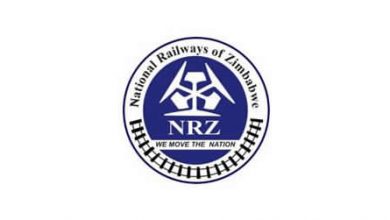Ncube proposes vault raids to curb tax evasion

Finance Minister, Mthuli Ncube, has proposed granting the Zimbabwe Revenue Authority (ZIMRA) the power to raid companies’ or individuals’ custody vaults or safety deposit boxes in banks and security companies to enforce tax compliance.
This proposal aims to address the issue of tax evasion and ensure that all businesses and individuals contribute their fair share to the fiscus.
According to the finance minister, since the law prohibits financial institutions from providing information on the owners of these safety deposit boxes, these owners were not declaring their gains, which implied the banking service was aiding tax evasion particularly on foreign currency receipts where sales are not declared.
Prof Ncube, who presented Zimbabwe’s $60 trillion 2024 National Budget in Parliament on Thursday, indicated that this step will drive owners of those safety boxes to pay taxes rather than avoid them, as well as push people who do not use the banking system to do so.
“In order to deter tax evasion, I propose that the Commissioner be empowered to open Custody vaults at any time to ascertain content and that financial institutions and other companies that offer custodial services receipt the content of cash in their custody,” he said while talking about custodial services provided by financial institutions and security companies.
The minister said whereas the multicurrency system has played a critical role in the market, he noted the small to medium enterprises operate exclusively in cash, with no matching duty for transparency, particularly in banking cash receipts and paying taxes.
“The current phenomenon is that financial institutions and security companies offer custodial services for cash in bank vaults,” Prof Ncube said.
“The Freedom of Information Act, however, prohibits companies from providing information on users of vaults, hence it is difficult to combat non-declaration of forex receipts. The service is thus aiding tax evasion in particular foreign currency receipts where sales are not declared.”
Prof Ncube argued that this provision in the law presented challenges to the Tax administration in the government’s endeavour to collect revenue as ZIMRA can only open a vault of a known taxpayer under a court order.
“A garnish order can thus not be placed against contents secured in the vaults unless the quantum thereof is known,” said the finance minister.
In response to the finance minister’s proposal, analyst, Bernard Magugu questioned whether such a move would also apply to the elite and politically connected or would be used only on firms and individuals believed to be anti-State.
“The proposal might be a measure to curb tax evasion but my main worry is whether the politically connected and their own businesses are paying taxes? Are they using the banking system formally?” he asked.
Magugu also remarked that it was in the public domain that certain government departments or companies linked to the elite owed private companies and even local authorities for services. meaning they were not too compliant.
“If you listen to Council reports or some independent organisations like the Bulawayo Progressive Residents Association (BPRA) you hear them complaining about money being owed by certain companies associated with the government or political institutions. I listened to the Mayor of Bulawayo David Coltart one time when he was talking and his main concern was tax evasion by certain companies connected to political institutions,” he said.
“If, raiding banks and security companies is going to assist in curbing tax evasion then fine but I suspect this wont work, it will just hit a few unfortunate companies and banks without political connections.”






